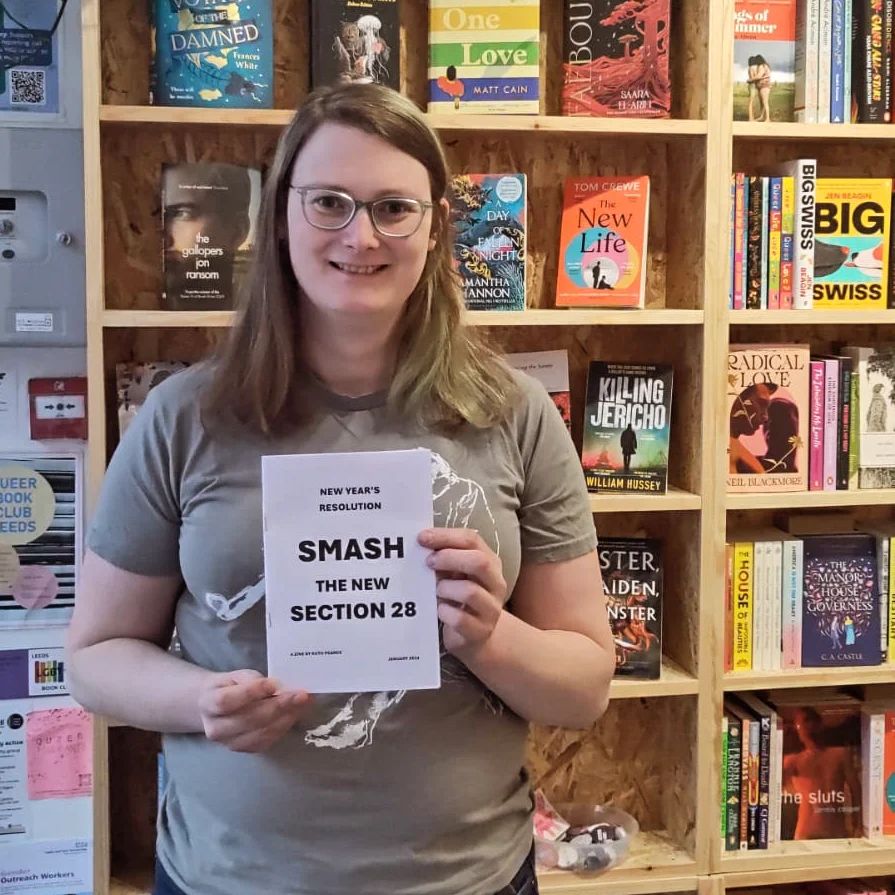On 12 March 2024, the UK Department of Education consultation on draft guidance on “gender questioning children” for schools and colleges will close. Until that date, we have our best possible chance to fight for the safety and wellbeing of young people.
Last month I wrote a long blog post and zine about this draft guidance: New Year’s Resolution: Smash the New Section 28. I argued that the guidance resembles the notorious anti-gay law Section 28, in that it aims to both directly oppress LGBTIQ+ young people, and create an atmosphere of fear and uncertainty around supporting them. This is to be done by reinforcing a strict sex binary. The guidance directly targets young trans people, but also threatens to enforce sexist and homophobic standards on all students, e.g. through stating that school uniforms should be allocated on the basis of “biological sex”.
I also argued that there are important reasons for hope, and many routes to resistance. One possible option is to take part in the consultation itself, but there are other approaches too, including noncompliance and resistance in schools, contacting politicians and unions to raise the alarm, supporting trans youth groups, and creative forms of protest.
Since I wrote Smash the New Section 28, the situation for young trans people has continued to deteriorate. In the UK, the Government has very quietly introduced a second consultation on proposals to segregate trans college students who are on trips or who would otherwise be sharing accommodation with other students. In the US, the murder of trans student Nex Benedict in a school bathroom shows just how dangerous the UK proposals would be in practice. I have updated my original post to reflect both of these events. Moreover, it’s emerged that the Royal College of GPs are hosting a conference for conversion therapy advocates in London, and the British public are more openly prejudiced towards trans people than they were just five years ago.
However, it’s also been really heartening to see how many people have read the blog post and shared the zine over the last month. I have particularly appreciated the support from the amazing independent Leeds book shop The Bookish Type, who have been giving away loads of free copies of the zine. I have heard from parents and bureaucrats who say they are using what I have written to argue for independent guidance that actually supports trans and gender non-conforming young people in schools and college.
Importantly, my writing is just one piece among many. Important critiques and consultation guides have been published by people and groups including The Diversity Trust, Just Like Us, Nancy Kelley, Gendered Intelligence, LGBT Foundation, Mermaids, Stonewall, and the Trans Learning Partnership. If you’re aware of any good writing or resources, please share in the comments and I will add it to this post.
You and the people you know have the resources to take action against the new Section 28. If the guidance is implemented, this will not be our only opportunity to fight back, but it is the best opportunity. Think about what you can do before 12 March: whether it’s writing to school governors or an MP, agitating in your workplace or union, or sharing information with others.
As ever, we can never win freedom alone, but have so much power when we act with others.






